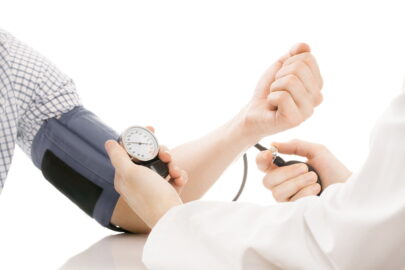Aviva has reported that 31% of UK adults have experienced temporary or permanent leave from work due to ill health, a cancer diagnosis or even a death within the family.
77% of these have seen their finances suffer, equivalent to 12.3 million people.
Aviva’s Protecting Our Families report shows the reality of the financial fall-out caused by unexpected illness, with a particularly damaging effect on families with young children. The research shows that 27% of parents with dependent children have suffered a health crisis, with 91% of these saying their finances were negatively affected.
UK adults who have suffered unexpected health events have noticeably poorer finances. Aviva’s data shows the average monthly income of someone who has experienced this is 24% lower than those who have not (£1,909 vs. £2,518). They also typically have 40% less in savings and investments (£2,991 vs. £5,011). In addition, they have 47% more in average debt (£9,692 vs. £6,573), possibly suggesting many who experience a health crisis are forced to turn to borrowing to cope.
UK adults who have experienced unexpected health events or a death in the family have had to resort to a number of measures to get by. 38% had to apply for benefits or other support from the government, while 22% had to dip into their savings. In addition, 13% cited that they stopped saving for their retirement. 16% also had to sell their personal possessions.
15% had to either downsize, move back in with family, start renting or even became homeless – demonstrating the life changing impact an unexpected loss of income due to ill health can cause.
Of those UK adults who have experienced loss of income due to ill-health, serious illness or a death in the family, 56% recovered within a year. However, 18% say this took longer than a year while 13% still haven’t recovered, and don’t know how long it will take.
12% or 1.9 million people who have experienced a health crisis don’t think they will ever recover from it financially. Women (16%) are twice as likely to say this as men (8%).
Paul Brencher, Aviva UK health and protection director, said: “Millions of people have seen their finances damaged by poor health: without any plans in place, a loss of income caused by ill-health can have a long-lasting effect on people’s finances. This can be particularly difficult for those with a family to support, who often have a range of financial obligations – such as mortgage payments and bills – and also the added concern of how they will provide for their children.
“Illness can strike at any moment, and not having a plan in place for this could be a dangerous risk to take. Our research shows that many people who have experienced a health crisis have resorted to a number of unpleasant measures, like using nearly half of their savings, selling their personal possessions or even their home.
“Addressing the question of ‘what would I do if…’ is critical. Having honest conversations with family members about how you would cope financially in the event of unexpected ill health or even worse is vital, making plans to address any gaps in protection. The government can also help by continuing to make available, and improving, information on financial education and assistance for families, whilst the insurance industry must do all that it can to correct the perception that insurance is unaffordable and make applying for insurance simple and easy to do.”
